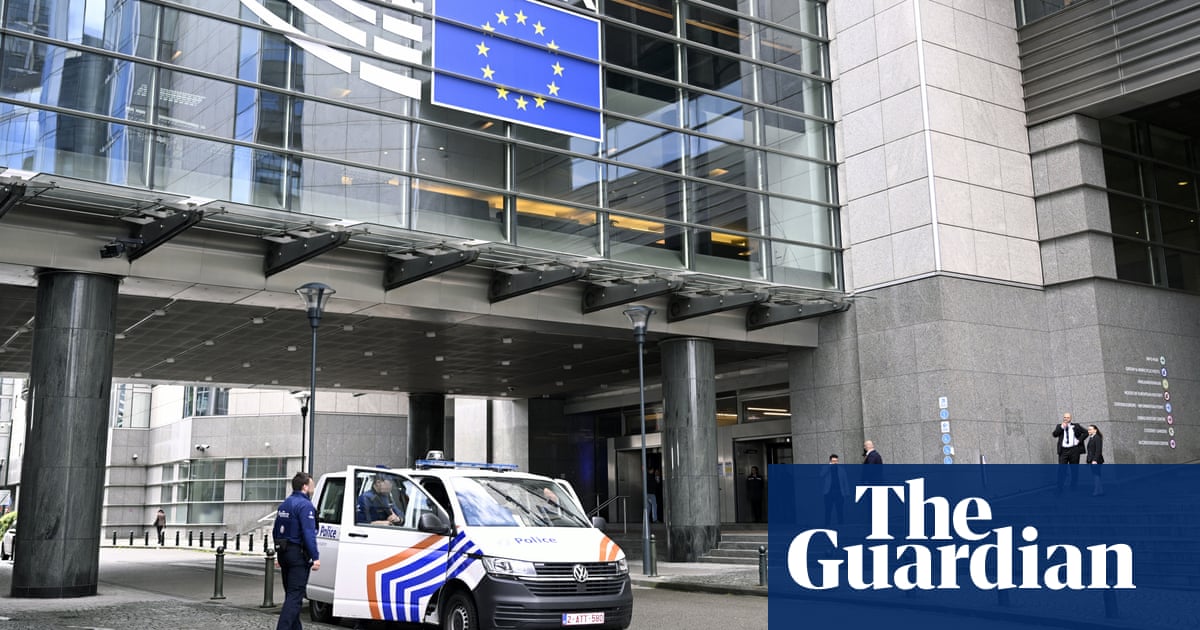Belgian Police Raid EU Parliament Office in Russian Interference Probe
Belgian police have conducted a search at the European parliament office and the Brussels home of a parliamentary staff member suspected of being involved in a significant role in a Russian interference operation. The national prosecutor revealed that French authorities also carried out a search at the employee’s European parliament office in Strasbourg as part of an investigation into corruption and Russian interference.
This case is linked to a broader Belgian investigation into alleged payments made to Members of European Parliament (MEPs) to promote Russian propaganda on the Voice of Europe website. The searches took place just ahead of the upcoming elections to the European parliament, raising concerns about potential interference in the electoral process.
The federal public prosecutor’s office in Belgium stated that the searches were related to a case of interference, passive corruption, and membership of a criminal organization with indications of Russian involvement. While the suspect’s identity has not been disclosed, Belgian media named the individual as Guillaume Pradoura, a former assistant to Maximilian Krah, a prominent figure in Germany’s Alternative für Deutschland party.
Pradoura has faced allegations of accepting payments for interviews on Voice of Europe and has denied any wrongdoing. Additionally, one of his assistants, Jian Guo, was arrested on suspicions of espionage for China. The investigation has also implicated Marcel de Graaff, a Dutch MEP for the far-right Forum for Democracy party, who denied any involvement in Russian disinformation activities.
The European Union recently imposed sanctions on the Voice of Europe website for engaging in a campaign of media manipulation to destabilize Ukraine and EU member states. The operation was described as sophisticated and aimed at dividing and weakening Europe. This incident underscores the ongoing threats of foreign interference in European politics and the need for heightened vigilance to safeguard democratic processes.
European Elections at Risk: Belgian Probe Uncovers Russian Influence
The recent police raids at the European parliament office and the home of a parliamentary staff member have raised concerns about potential Russian interference in the upcoming European elections. The investigation into alleged payments to MEPs to promote Russian propaganda highlights the vulnerabilities in the electoral process and the need for enhanced security measures to counter foreign influence.
Belgium’s prime minister’s warning about a pro-Russian interference network operating in several European countries underscores the magnitude of the threat posed by external actors seeking to manipulate election outcomes. The sanctions imposed on the Voice of Europe website by the EU signal a concerted effort to combat disinformation campaigns and safeguard democratic institutions from external manipulation.
The involvement of high-profile individuals like Maximilian Krah and Marcel de Graaff in the investigation underscores the reach of Russian influence operations across European political landscapes. The arrest of Pradoura and Guo on suspicion of espionage further underscores the complex web of foreign interference activities targeting European institutions.
The European elections serve as a critical battleground for competing narratives and geopolitical interests, making them susceptible to external manipulation and interference. The revelations from the Belgian probe highlight the urgent need for coordinated efforts at the national and EU levels to protect the integrity of democratic processes and ensure fair and transparent elections.
Russian Disinformation Campaigns Threaten European Unity
The ongoing investigations into Russian interference in European politics underscore the persistent threats posed by disinformation campaigns and foreign influence operations. The sophisticated nature of these activities, as seen in the case of the Voice of Europe website, highlights the challenges in combating misinformation and safeguarding democratic institutions from external manipulation.
The sanctions imposed on the website and individuals connected to it demonstrate the EU’s commitment to upholding democratic values and countering efforts to destabilize European unity. The Russian goal of sowing division and chaos in Europe through disinformation campaigns underscores the need for collective action to defend against such threats and preserve the integrity of democratic processes.
As the European elections approach, the revelations from the Belgian investigation serve as a stark reminder of the vulnerabilities in the electoral system and the importance of safeguarding against foreign interference. By remaining vigilant and proactive in addressing these challenges, European countries can protect their democratic institutions and uphold the principles of transparency and accountability in the face of external threats.




